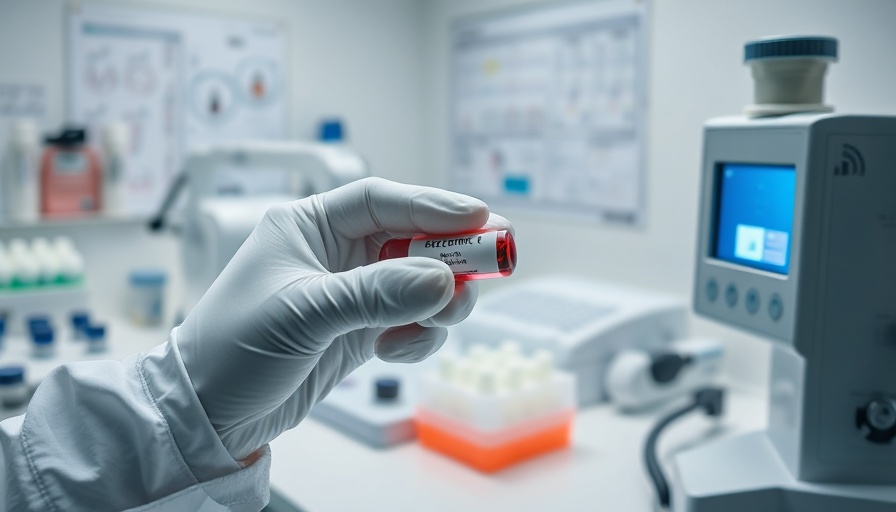
Transforming Emergency Care: Early Heart Attack Detection
A groundbreaking study has revealed that a new high-sensitivity cardiac troponin test could help as many as 60% of patients suspected of having a heart attack avoid unnecessary hospital admissions. Conducted by researchers at Hennepin Healthcare in Minneapolis, the findings indicate that this assay, developed by Mindray, can effectively measure troponin I proteins that emerge into the bloodstream during heart attacks and when the heart sustains damage.
How the Troponin Test Works and Its Impact
The high-sensitivity cardiac troponin I (hs-cTnI) test operates by measuring ultra-low levels of troponin in the blood, providing clinical teams with crucial information about heart health. Unlike previous models, which often required multiple blood tests over hours, the hs-cTnI test has shown the ability to determine a patient's risk of a heart attack quickly. Preliminary studies demonstrated that approximately 15% of patients can be confidently ruled out for a heart attack with just one blood test upon their arrival at the emergency department.
Combining results from two blood samples taken at intervals allows additional patients—an estimated further 30-40%—to be ruled out, effectively lowering the pressure on emergency departments overwhelmed with potential heart attack cases. This advancement is particularly significant as the speed at which medical staff can respond to critical situations impacts patient outcomes profoundly.
Expert Insights into the Breakthrough
Professor Fred Apple, who led the study, highlights the considerable implications for emergency medicine practice. He remarks, “Patients would prefer to be at home, reassured that they are not experiencing a heart attack. This new assay allows for a safer assessment and can significantly improve how we triage patients.” This sentiment echoes the findings of a related study from Vanderbilt University Hospital, which found similar benefits of a high-sensitivity troponin T test that delivers results rapidly, aiding timely interventions.
Future Implications and Conclusion
As more hospitals adopt this innovative test, experts anticipate a transformation in emergency care standards. With advancements like the hs-cTnI test, healthcare systems can potentially allocate resources more efficiently while ensuring that patients receive timely and appropriate care. The enhanced algorithms for evaluating patients further underline a move towards precision medicine in cardiology. As this field continues to evolve, the integration of such technology will likely lead to better patient outcomes and a significant decrease in emergency room overcrowding.
Understanding the advancements in heart attack detection and responding appropriately could save lives. For anyone who experiences symptoms such as chest pain or significant discomfort, it is vital to seek medical attention immediately. Trusting the advancements in technology can lead to faster and safer health outcomes.
 Add Row
Add Row  Add
Add 




Write A Comment